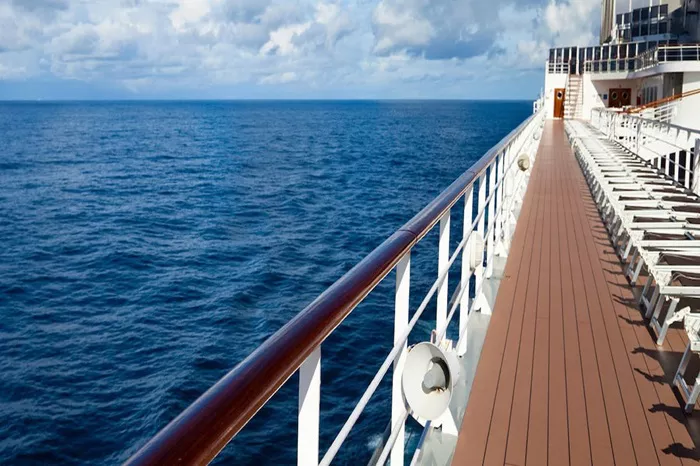In the realm of travel insurance, cruise-specific coverage stands out for its tailored protection against unique risks that cruisers may encounter. Whether you’re embarking on a short coastal voyage or a transatlantic adventure, having the right insurance can provide peace of mind. Here, we delve into some of the top cruise insurance plans available as of July 2024, offering comprehensive coverage and benefits to safeguard your cruise experience.
Comparison of Coverage Options
Cruise insurance plans vary widely in terms of coverage and benefits, making it crucial to choose one that aligns with your specific needs and travel plans. Here’s a detailed comparison of some leading cruise insurance plans:
1. Allianz Global Assistance Cruise Insurance
Allianz Global Assistance offers robust cruise insurance plans that cater to diverse travel needs.
Key features:
Trip Cancellation and Interruption Coverage: Protection against unforeseen events that may cause you to cancel or cut short your cruise.
Emergency Medical Coverage: Coverage for medical emergencies, including evacuation from the ship if necessary.
Trip Delay and Missed Connection Coverage: Reimbursement for additional expenses incurred due to trip delays or missed connections.
Pros:
Comprehensive coverage options.
High limits for emergency medical expenses.
24/7 travel assistance services.
Cons:
Coverage limits may vary based on the plan selected.
Pre-existing conditions coverage may require specific conditions.
2. Travel Guard Cruise Insurance
Travel Guard offers tailored cruise insurance plans designed to address the unique risks associated with cruise travel.
Key features:
Cruise Specific Coverage: Coverage for missed ports, itinerary changes, and other cruise-specific issues.
Cancel for Any Reason (CFAR) Option: Provides flexibility to cancel your trip for any reason not otherwise covered by standard trip cancellation benefits.
Baggage and Personal Effects Coverage: Protection against loss, damage, or theft of baggage and personal belongings.
Pros:
CFAR option offers maximum flexibility.
Coverage for missed ports and itinerary changes.
Excellent customer service and claims handling.
Cons:
CFAR coverage typically reimburses a percentage (usually 50-75%) of the non-refundable trip cost.
Some coverage options may require additional premium.
3. AIG Travel Guard Gold Cruise Insurance
AIG Travel Guard Gold offers comprehensive travel insurance plans with enhanced coverage options for cruise travelers.
Key features:
Enhanced Trip Cancellation Coverage: Extensive coverage for trip cancellation due to covered reasons.
Medical Expense Coverage: Comprehensive coverage for emergency medical and dental expenses incurred during the cruise.
Travel Assistance Services: 24/7 assistance services, including medical referrals and emergency transportation.
Pros:
Enhanced trip cancellation benefits.
Higher coverage limits for emergency medical expenses.
Additional coverage options available for sports and adventure activities.
Cons:
Coverage exclusions may apply based on pre-existing conditions.
Some optional coverage enhancements may come at an additional cost.
See Also: When to Take out Annual Travel Insurance
4. Berkshire Hathaway Travel Protection ExactCare Lite Cruise
Berkshire Hathaway Travel Protection offers the ExactCare Lite Cruise plan, providing essential coverage for cruise travelers at an affordable price.
Key features:
Trip Cancellation and Interruption Coverage: Coverage for trip cancellation or interruption due to covered reasons.
Emergency Medical Coverage: Coverage for emergency medical expenses incurred during the cruise.
Baggage Loss/Delay Coverage: Reimbursement for lost, damaged, or delayed baggage during the trip.
Pros:
Affordable pricing with essential coverage.
Option to add additional coverage enhancements.
Simple and straightforward claims process.
Cons:
Coverage limits may be lower compared to premium plans.
Limited options for coverage enhancements.
5. Seven Corners RoundTrip Choice Cruise
Seven Corners offers the RoundTrip Choice Cruise plan, combining comprehensive coverage with competitive pricing for cruise travelers.
Key features:
Trip Cancellation and Interruption Coverage: Coverage for trip cancellation or interruption due to covered reasons.
Emergency Medical and Dental Coverage: Comprehensive coverage for emergency medical and dental expenses during the cruise.
Travel Delay and Missed Connection Coverage: Reimbursement for additional expenses due to travel delays or missed connections.
Pros:
Comprehensive coverage options.
High limits for emergency medical expenses.
Optional coverage enhancements available.
Cons:
Some coverage options may require additional premium.
Pre-existing conditions coverage limitations may apply.
Conclusion
This article provides a detailed overview of some of the best cruise insurance plans available as of July 2024, highlighting their features, pros, and cons to help you make an informed decision for your next cruise adventure. When selecting a plan, consider your travel itinerary, medical needs, and specific coverage preferences to ensure you find the best cruise insurance that suits your individual requirements.
FAQs
1. When should you book a cruise 2024?
The best deals tend to crop up throughout the period between mid-November and Mid-March. That being said, if you don’t want to monitor cruise deals for four months straight, the single best window of time to keep an eye on them may be from mid-November through mid-December.
2. How long before a cruise can you purchase insurance?
You can purchase cruise travel insurance immediately after booking your trip until just before your departure. But the best time to take out coverage is as soon as you have made your booking. This way, you will have a longer coverage window for trip cancellation.
3. What type of insurance do I need for a cruise ship?
Cruise cover is a mandatory add-on for travel Insurance that protects against travel risks unique to going on a cruise. These can include becoming unwell at sea or added complications if luggage is lost or stolen. With cruise cover, you pay an extra premium for extra protection in case of such events.
4. What is the cheapest month to cruise?
Prospective cruisers can usually find “a lot of good deals at the beginning of the year” during wave season, Goldberg-Glazer said. That period typically lasts from January until March. However, the optimal time to book may depend on when you plan to sail.
5. Do prices of cruises go down as the date gets closer?
If a cruise is filling up quickly, the company has no reason to release a sale to entice customers. But if a cruise’s departure date is fast approaching and the ship is only partially booked, prices will drop and complimentary add-ons will increase, resulting in some happy customers.






















